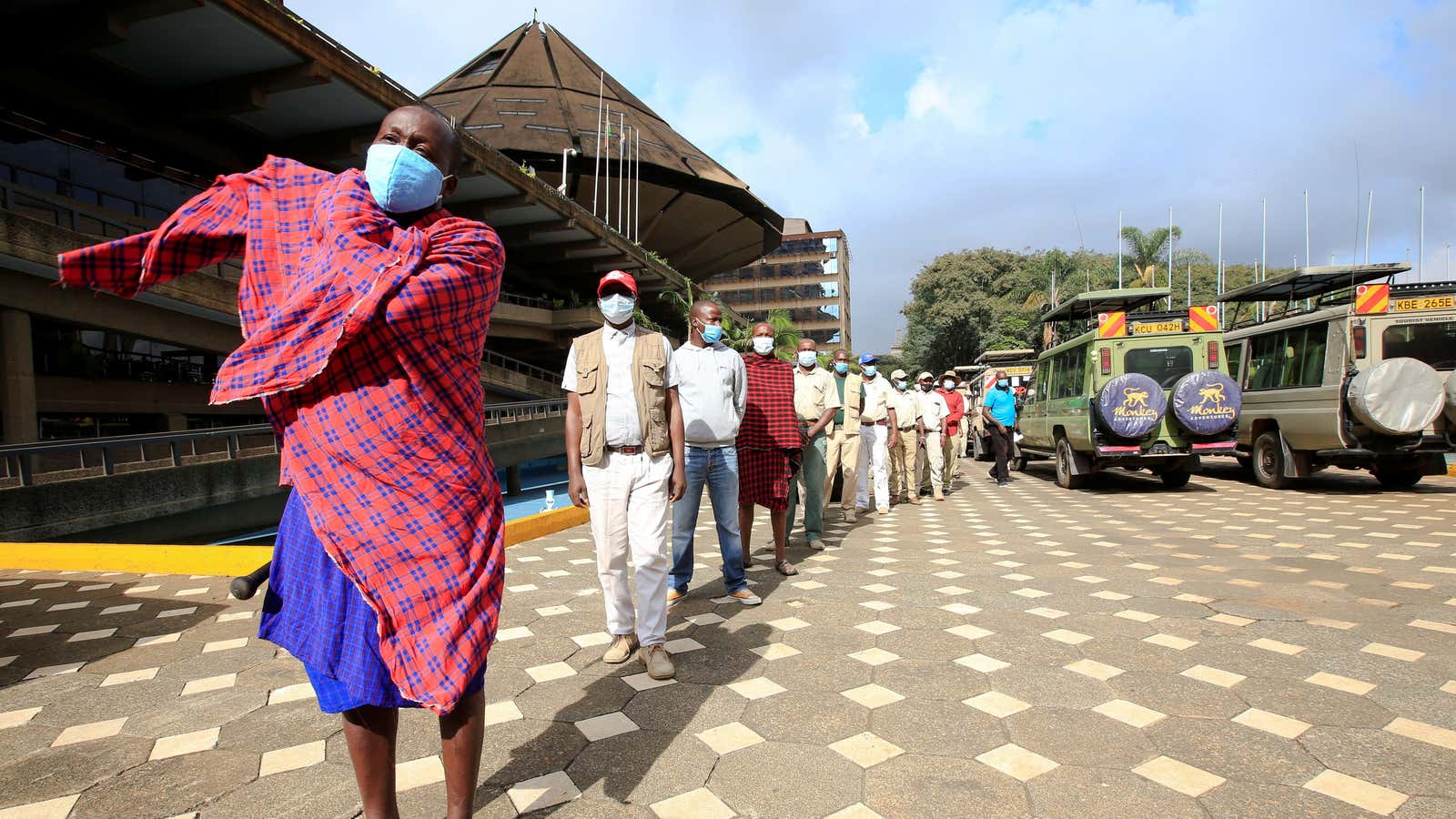Rich countries—including Canada, Australia, the US, and members of the EU—will have received enough doses of Covid-19 vaccines to vaccinate their populations four times over before many countries receive any at all.
As poor nations—led by India and South Africa, and with US support—continue to push for a temporary patent waiver that would allow them to produce the vaccines without paying for licensing, wealthy ones have brokered deals with Pfizer and Moderna to secure billions of doses by 2023.
Securing future vaccines
We are entering the vaccine inequality stage of the pandemic. Fifteen months after it officially started, the Covid-19 pandemic is now a tale of two worlds. Most rich countries are moving steadily toward full vaccination. Large groups of their populations have received at least the first dose of vaccine, and in many cases, the second. Cities are opening back up, and life is getting back to pre-pandemic normal.
But for poor countries, the pandemic is far from over. India is still battling a deadly second wave that killed hundreds of thousands, while just 13% of its population has received a vaccine. In most African nations, less than 2% of the population has received even one dose.
The countries unable to set up their own vaccine procurement programs and that depend on Covax—a global coalition to procure and distribute vaccines, especially to low-income countries—are making very slow progress toward immunization. This puts them at risk of deadly Covid-19 waves and increases the odds new, vaccine-resistant variants might emerge.
Rich countries are hoarding vaccines
In recent deals, the EU has secured 900 million doses of Pfizer’s vaccine, and reserved an option to buy 900 million more to be delivered by 2023. That gives the EU as many as 3 billion secured doses, or 6.6 per person, without accounting for the optioned ones.
The US has brokered deals for 1.3 billion doses so far—five per citizen. Canada has secured 65 million Pfizer doses and optioned another 120 million. Together with the doses already purchased, this brings the country’s secured doses to over 450 million for a population of less than 40 million. The UK has agreements for over 500 million doses (about eight per person), and Australia has ordered 170 million doses for its population of 25 million.
Nations with the means are buying excess doses in case more booster shots might be necessary. Future doses might have tweaked formulations that target new variants, too, should that become a problem.
According to UNICEF, which is tracking the doses distributed across the world both through Covax and other agreements, the majority of high-income countries have secured at least 350% of the doses they need (without accounting for vaccines that they have optioned but are yet to be released). Meanwhile, the agreements reached by low- and middle-income countries for doses to be delivered up to 2023 cover half their populations, or less.
The consequences of vaccine inequality
Excess vaccines give wealthy countries power over those dependent on donations in order to immunize their citizens. Many countries are using vaccines as a diplomatic tool, donating them in order to strengthen—or form—international alliances. China has excelled at this, but the US is catching up.
Recently, the US announced a plan to share 80 million excess doses with countries in need. Of those, 25% will be directly donated directly to neighboring countries, and 75% will go through Covax. Yet the US isn’t going to let Covax decide how all the doses are distributed and has earmarked 19 million doses to distribute to specific countries.
